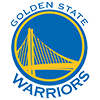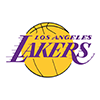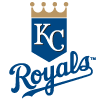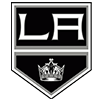One week into the 2010-2011 season the league's focus on concussions is being tested as several players, including quarterbacks Kevin Kolb and Matt Moore, suffered concussions in their team's season opener. Concussions and head injuries have been a primary focal point for NFL commissioner Roger Goodell since he assumed the role in 2006. Over the past few years he has spent time with numerous former players, medical professionals, and specialists working to better understand the short term and long-term effects of concussions. He recently urged 44 state governors to adopt specific laws protecting athletes against concussions and this past offseason the NFL issued each team an updated locker room poster that outlines the signs and symptoms of a concussion and warns of the dangers associated with the injury.
Goodell has also worked with NFL medical staffs and countless specialists to adopt stricter and more specific guidelines for return-to-play following a head injury. Each team now utilizes a detailed process before a player is eligible to return. A player must first be asymptomatic at rest, meaning no concussion-related side effects, like dizziness or blurred vision, are present without exercise. The player must then perform an exertional exercise and remain symptom-free and pass a neurological exam. They must then pass a normal neuropsychological test before finally being cleared by the team's physician or physicians AND an independent neurological consultant approved by the athlete.
Philadelphia's Kolb sustained a concussion in the second quarter after taking a hit from Green Bay linebacker Clay
One week into the 2010-2011 season the league's focus on concussions is being tested as several players, including quarterbacks Kevin Kolb and Matt Moore, suffered concussions in their team's season opener. Concussions and head injuries have been a primary focal point for NFL commissioner Roger Goodell since he assumed the role in 2006. Over the past few years he has spent time with numerous former players, medical professionals, and specialists working to better understand the short term and long-term effects of concussions. He recently urged 44 state governors to adopt specific laws protecting athletes against concussions and this past offseason the NFL issued each team an updated locker room poster that outlines the signs and symptoms of a concussion and warns of the dangers associated with the injury.
Goodell has also worked with NFL medical staffs and countless specialists to adopt stricter and more specific guidelines for return-to-play following a head injury. Each team now utilizes a detailed process before a player is eligible to return. A player must first be asymptomatic at rest, meaning no concussion-related side effects, like dizziness or blurred vision, are present without exercise. The player must then perform an exertional exercise and remain symptom-free and pass a neurological exam. They must then pass a normal neuropsychological test before finally being cleared by the team's physician or physicians AND an independent neurological consultant approved by the athlete.
Philadelphia's Kolb sustained a concussion in the second quarter after taking a hit from Green Bay linebacker Clay Matthews. Kolb attempted one more series before being replaced by Michael Vick. Kolb did not pass his first neurological exam performed Monday and will not participate in practice until Friday at the earliest. The decision is a bold statement by the Philly organization that they are committed to following the new guidelines. Remember the Eagles are no strangers to concussions after they watched former running back Brian Westbrook suffer multiple concussions last season that limited him to just eight games. Kolb sounds iffy at best for Philadelphia's Week 2 matchup against Detroit making Vick a must-add for the immediate future. Vick showed flashes of his best days in Atlanta, rushing for 103 yards and throwing for 175 yards and a touchdown after replacing Kolb.
It sounds like the concussion Moore suffered late in the Panther's loss to the Giants is not as serious as Kolb's as he is already reporting an improvement. However the Panthers have always taken a hard stance with concussions and like the Eagles will be conservative in their approach. Moore will visit with an independent neurologist in the coming days and remains day-to-day. If he is unable to go, rookie Jimmy Clausen will start in Week 2 when the Buccaneers travel to Carolina.
Fantasy owners should get use to this conservative approach when a player suffers a concussion. Goodell and the NFL have taken a serious position against playing a concussed player and it is looking more and more likely that any player who does suffer a concussion will miss at least one game. Kolb and Moore may still be cleared but will remain on short leashes and cannot be counted on for fantasy purposes.
Another quarterback was roughed up in Week 1 as Detroit's Matthew Stafford suffered a right shoulder injury. The injury occurred when Bear's defensive end Julius Peppers sacked the second-year pro driving the quarterback's shoulder into the ground. The Lions have not publically stated the specifics of the injury but have ruled out surgery and said the injury was not to the labrum or the rotator cuff. Reports have indicated it is a second-degree shoulder separation and that Stafford will visit with infamous orthopedist Dr. James Andrew for a second opinion. Last season Stafford suffered a sprain to his left acromioclavicular joint (AC joint) and missed the last two games of the season after aggravating the injury. The most recent injury is more cause for concern since it is to Stafford's throwing arm. Expect Stafford to miss Week 2 and for a clearer picture of his long-term health to emerge once he has visited with Dr. Andrews. Shaun Hill assumes the starting quarterback job for the Lions.
Green Bay's Brandon Jackson becomes a hot fantasy commodity after starting running back Ryan Grant has already been ruled out for Week 2 with a "significant" ankle injury. Grant's injury is being labeled a sprain and coach Mike McCarthy would not rule out surgery. Grant has labeled himself "week-to-week". It sounds like he has a Grade II ankle sprain at best with a high ankle sprain possible. Ankle sprains are graded on a scale based on the amount of damage done. A Grade I sprain is considered minor with over-stretch damage and/or micro tearing of the effected ligament while a Grade II sprain often indicates a partial ligament tear. Grade III tears are complete tears and result in a loss of function and stability. A syndesmotic sprain, or high ankle sprain, is different and occurs in the distal tibiofemoral joint. Here, a strong ligament known as the interosseous ligament stretches across the joint to connect the two lower leg bones. Two more ligaments, the anterior and posterior tibiofibular ligaments, assist in stabilizing the ankle mortise. A high ankle sprain involves excessive stretching and disruption of these particular ligaments and takes longer to heal than a normal inversion or eversion ankle sprain. Grant owners who haven't scooped up Jackson should make the necessary roster moves to fill the hole.
Rams running back Steven Jackson underwent a precautionary MRI that revealed inflammation on his right knee. The inflammation may be the result of several things including bursitis and tendinitis. Tendinitis is a condition that occurs when a tendon connecting muscle to bone becomes inflamed. In knee tendinitis, the tendon connecting the quadriceps muscle to the lower leg bone is the most commonly affected and can cause pain and stiffness. Bursitis, on the other hand, occurs when a fluid-filled sac known as a bursa becomes inflamed. Bursae sacs act as a buffer, reducing friction between various tissues of particular joints. When damaged they can become inflamed and like tendinitis result in pain, swelling, and tenderness. Multiple bursae sacs surround the knee and are susceptible to trauma. Whatever the exact cause of the inflammation, the Rams are treating Jackson as day-to-day and expect him to be available for Week 2.
And on Tuesday morning, it was announced that Jets defensive tackle Kris Jenkins has a torn anterior cruciate ligament in his left knee -- the same ACL that was re-constructed just over a year ago. Jenkins is out for the year, and his career is very much in jeopardy at this point.
Jeff Stotts is a Certified Athletic Trainer, MAT, PES and the Injury Analyst for Rotowire.com. You can follow him on twitter @RotoWireATC.


























